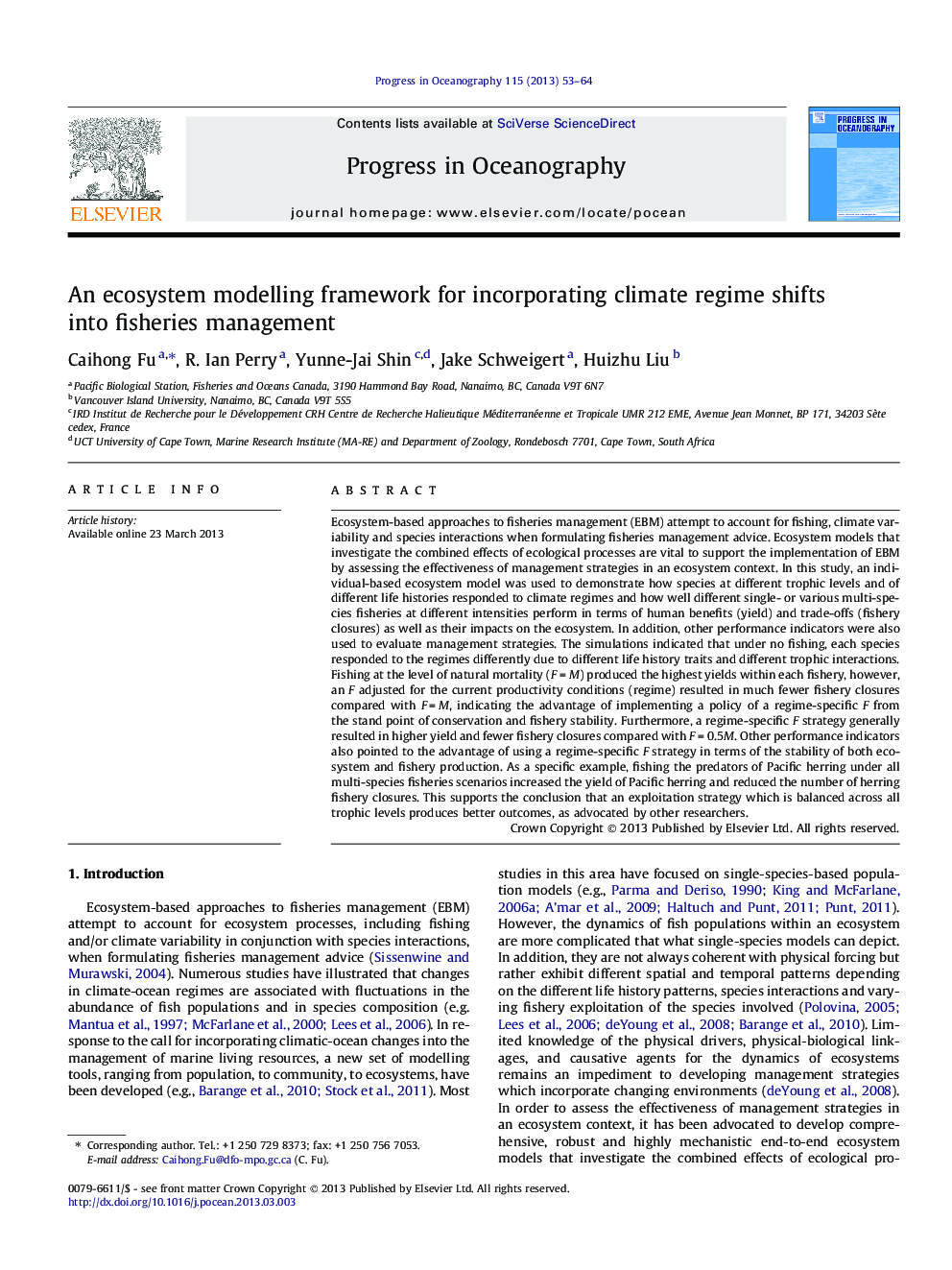| کد مقاله | کد نشریه | سال انتشار | مقاله انگلیسی | نسخه تمام متن |
|---|---|---|---|---|
| 6388747 | 1627940 | 2013 | 12 صفحه PDF | دانلود رایگان |
عنوان انگلیسی مقاله ISI
An ecosystem modelling framework for incorporating climate regime shifts into fisheries management
ترجمه فارسی عنوان
چارچوب مدل سازی اکوسیستم برای ترکیب رژیم اقلیمی به مدیریت ماهیگیری منتهی می شود
دانلود مقاله + سفارش ترجمه
دانلود مقاله ISI انگلیسی
رایگان برای ایرانیان
موضوعات مرتبط
مهندسی و علوم پایه
علوم زمین و سیارات
زمین شناسی
چکیده انگلیسی
Ecosystem-based approaches to fisheries management (EBM) attempt to account for fishing, climate variability and species interactions when formulating fisheries management advice. Ecosystem models that investigate the combined effects of ecological processes are vital to support the implementation of EBM by assessing the effectiveness of management strategies in an ecosystem context. In this study, an individual-based ecosystem model was used to demonstrate how species at different trophic levels and of different life histories responded to climate regimes and how well different single- or various multi-species fisheries at different intensities perform in terms of human benefits (yield) and trade-offs (fishery closures) as well as their impacts on the ecosystem. In addition, other performance indicators were also used to evaluate management strategies. The simulations indicated that under no fishing, each species responded to the regimes differently due to different life history traits and different trophic interactions. Fishing at the level of natural mortality (FÂ =Â M) produced the highest yields within each fishery, however, an F adjusted for the current productivity conditions (regime) resulted in much fewer fishery closures compared with FÂ =Â M, indicating the advantage of implementing a policy of a regime-specific F from the stand point of conservation and fishery stability. Furthermore, a regime-specific F strategy generally resulted in higher yield and fewer fishery closures compared with FÂ =Â 0.5M. Other performance indicators also pointed to the advantage of using a regime-specific F strategy in terms of the stability of both ecosystem and fishery production. As a specific example, fishing the predators of Pacific herring under all multi-species fisheries scenarios increased the yield of Pacific herring and reduced the number of herring fishery closures. This supports the conclusion that an exploitation strategy which is balanced across all trophic levels produces better outcomes, as advocated by other researchers.
ناشر
Database: Elsevier - ScienceDirect (ساینس دایرکت)
Journal: Progress in Oceanography - Volume 115, August 2013, Pages 53-64
Journal: Progress in Oceanography - Volume 115, August 2013, Pages 53-64
نویسندگان
Caihong Fu, R. Ian Perry, Yunne-Jai Shin, Jake Schweigert, Huizhu Liu,
